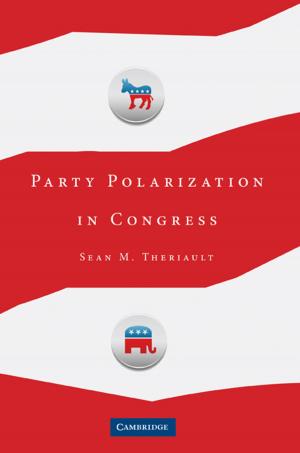Formal Models of Domestic Politics
Nonfiction, Science & Nature, Mathematics, Reference & Language, Reference, Social & Cultural Studies, Political Science| Author: | Scott Gehlbach | ISBN: | 9781107301061 |
| Publisher: | Cambridge University Press | Publication: | April 8, 2013 |
| Imprint: | Cambridge University Press | Language: | English |
| Author: | Scott Gehlbach |
| ISBN: | 9781107301061 |
| Publisher: | Cambridge University Press |
| Publication: | April 8, 2013 |
| Imprint: | Cambridge University Press |
| Language: | English |
Formal Models of Domestic Politics offers the first unified and accessible treatment of canonical and important new formal models of domestic politics. Intended for students in political science and economics who have already taken a course in game theory, the text covers eight classes of models: electoral competition under certainty and uncertainty, special interest politics, veto players, delegation, coalitions, political agency and regime change. Political economists, comparativists and Americanists alike will find models here central to their research interests. The text assumes no mathematical knowledge beyond basic calculus, with an emphasis placed on clarity of presentation. Political scientists will appreciate the simplification of economic environments to focus on the political logic of models; economists will discover many important models of politics published outside of their discipline; and both instructors and students will value the numerous classroom-tested exercises.
Formal Models of Domestic Politics offers the first unified and accessible treatment of canonical and important new formal models of domestic politics. Intended for students in political science and economics who have already taken a course in game theory, the text covers eight classes of models: electoral competition under certainty and uncertainty, special interest politics, veto players, delegation, coalitions, political agency and regime change. Political economists, comparativists and Americanists alike will find models here central to their research interests. The text assumes no mathematical knowledge beyond basic calculus, with an emphasis placed on clarity of presentation. Political scientists will appreciate the simplification of economic environments to focus on the political logic of models; economists will discover many important models of politics published outside of their discipline; and both instructors and students will value the numerous classroom-tested exercises.















